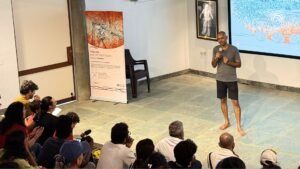In our pursuit of knowledge and understanding, the development of our senses plays a crucial role. Our senses – sight, hearing, smell, touch, taste, and the mind – serve as conduits through which we gather information from the external world. However, the accuracy and sensitivity of our senses can be impeded by various obstacles. This article explores the importance of awakening our senses, addressing these obstacles, and unlocking the path to clarity and discernment.
Removing Obstacles to Accuracy and Sensitivity:
To understand how to enhance the accuracy and sensitivity of our senses, we must identify the obstacles that hinder their optimal functioning. The primary factors contributing to imperfection lie in the activity of the nerves, the passive acceptance of the mind, and the interplay between them. While our sensory organs inherently deliver precise information, obstructions in the nerve channels or disturbances within the mind can hinder the accuracy and clarity of sensory perception. Identifying and rectifying these obstacles is crucial for awakening our senses.
Nerve-Purification:
Unlocking Sensitiveness: One key factor in enhancing sensory perception lies in the purification of our nervous system. By regulating our breathing, a practice known as nāḍī-śuddhi, we can clear obstructions within the nerve channels and restore their unobstructed activity. This purification process, increasingly popular in Europe for various purposes, leads to heightened sensitiveness of the senses. By engaging in nerve-purification techniques, we can significantly improve the accuracy and sensitivity of our sensory experiences.
Cultivating Calmness for Distortion-Free Perception:
Distortions in sensory perception can arise from emotional disturbances within the nerve channels. Fear, alarm, or other intense emotions can alter our interpretation of sensory information, leading to inaccurate perceptions. The cultivation of calmness and the practice of nāḍī-śuddhi can alleviate these distortions by instilling a habitual steadiness in our nervous system. By achieving emotional stability, we pave the way for distortion-free perception, allowing us to engage with the world more accurately.
The Mind as a Channel for Reception:
The mind, both a sense organ and a channel for communication with the intellect, plays a vital role in sensory perception. Direct impressions of thought, form, sound, and other sensations are received by the mind. However, these impressions can be influenced by the mind’s interaction with the intellect, potentially distorting the information conveyed. The development of the mind’s sensitiveness, known as sūkṣmadṛṣṭi, encompasses various abilities such as telepathy, clairvoyance, and thought-reading. While these powers have historically remained undeveloped, training the mind to provide accurate reports to the intellect enables our thoughts to be rooted in correct impressions.
Overcoming Obstacles in the Citta:
The citta, or passive memory, can introduce further obstacles to accurate perception. Our habitual ways of looking at things, shaped by past associations, can unconsciously influence our interpretation of new experiences. These ingrained associations can distort or overlay new impressions, compromising clarity. Purification of the mental and moral habits formed within the citta, known as cittaśuddhi, is necessary to address these obstacles. While the process of cittaśuddhi was integral to ancient Yogic systems, it may require adaptation within modern educational frameworks.
Passivity of Thought Sensations for Selective Intellect:
One approach to address obstacles within the citta involves cultivating passivity of thought sensations that arise from passive memory. This passivity liberates the intellect from the influence of old associations and false impressions. The intellect gains the power to selectively choose and arrange information from the storehouse of passive memory, facilitating the formation of correct impressions and enabling discernment. By purifying the citta, the intellect fulfills its role as a discriminating, selecting, and arranging force, contributing to clarity and discernment in our perceptions.
Awakening our senses is a transformative journey that leads to clarity and discernment. By addressing obstacles such as nerve blockages, emotional disturbances, and ingrained associations, we can enhance the accuracy and sensitivity of our senses. Through practices like nerve-purification, cultivation of calmness, and the development of passivity in thought sensations, we unlock the potential for clear and discerning perception. Let us embark on this path of awakening, for it opens doors to a deeper understanding of ourselves and the world around us, guiding us toward greater wisdom and insight.



